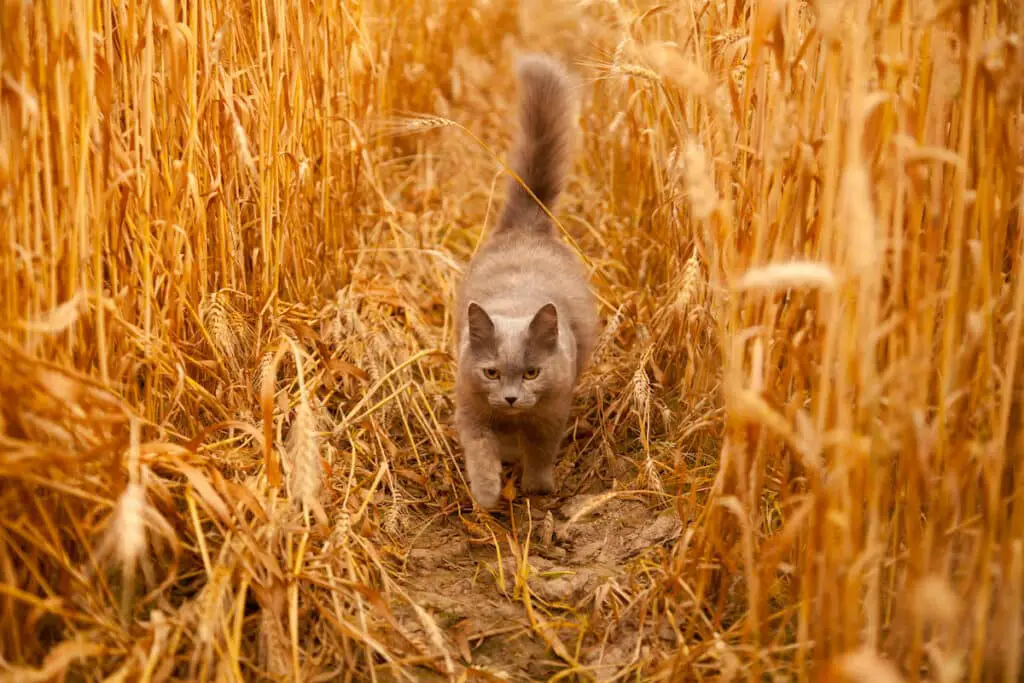Whether you want to know the answer to the question, should I feed my cat grain free or not, it is important to know some of the basics. Grain-free diets can be beneficial for many cats, but they may also result in a lack of certain essential nutrients. You may need to feed your cat a variety of different foods to get all of the nutrients they need.
Rice is a grain crop
Unlike other high-carb foods, rice is not only a good source of carbohydrates, but it is also easy to digest. Rice is a great choice for cats with an upset stomach, or cats who are underweight.
Rice is grown in water. It is also easily stored. It is affordable and is compatible with other food items.
The United States is a major supplier of rice to the world market. It ships 5 percent of global rice exports. In 2021, the U.S. rice crop was 191.8 million hundredweight (cwt). Its production was up slightly from 2019.
The United States produces four main types of rice: long-grain rice, medium-grain rice, broken kernel rice, and rough rice. Rough rice is sold at a discount to whole-kernel rice. It is later milled in importing countries.
The United States is the fifth largest exporter of rice. In 2021, it shipped 191.8 million hundredweight (cwt). It is estimated that by 2021, rice imports into the United States will be nearly tripled from 2001/02.
The U.S. rice production is primarily concentrated in the South and California. In the 1980s, acreage reduction programs and low prices pushed planted acres down. However, rice yields have been steadily increasing since the 1970s.
White rice is a filler in cat food
Having a lot of rice in your cat’s diet may not be a good idea. It may lead to bloating, indigestion and even weight gain. This is why it’s best to avoid it altogether.
It is important to know what to look for in cat food. Commercial cat foods are often full of additives and preservatives. They may also contain a lot of carbohydrates. These empty calories can lead to weight gain and increased blood sugar levels.
Rice is often used as a filler in cat food. It’s important to choose a quality brand that is suitable for your pet.
The cat food label should tell you how much rice is included in the food. It should also list any other ingredients. This will help you determine if the product is safe to give your cat.
If your cat is allergic to grains, you might want to avoid giving him or her rice. However, there are some exceptions.
Grain-free diets may lead to a deficiency of essential nutrients
Despite popular belief, grains are not bad for cats. In fact, they can be important sources of vitamins, essential fatty acids, and fiber. They also provide a source of energy in moderate amounts.
Cats are carnivores, and they use dietary protein as energy. They also have a unique protein need, which requires specific amino acids in the diet. Unlike dogs, cats cannot produce taurine on their own. They need to supplement it with taurine-rich foods.
Grains are a good source of fiber, which prevents hair balls and aids in gastrointestinal health. They also contain iron, calcium, and niacin, all of which contribute to health.
Grains are a source of carbohydrates, which cats use as energy. They are also a good source of vitamins and minerals. But they are not necessarily better for cats than other types of pet food.
There have been less than 20 reports linking grain-free diets to health problems in cats. Some of these reports were inconclusive, however, and further studies are needed to determine the link.
Natural vs commercial diets can cause nutrient deficiency and/or disease in cats
Whether you feed a natural vs commercial diet to your cat, you should be aware that certain diet trends may pose a risk of nutrient deficiency and disease. Cats are true carnivores and require high protein and fat diets.
In addition to protein, cats require taurine, which is a crucial amino acid. They can’t synthesize taurine, but can get it from animal sources. Insufficient levels of taurine can cause serious eye problems, blindness, and dilated cardiomyopathy.
Vitamin B6 is a water-soluble vitamin that plays a key role in red blood cell formation and immune function. Vitamin B6 is essential for cat health because it is necessary for metabolizing carbohydrates and converting them to energy. If your cat is lacking vitamin B6, you may see symptoms such as convulsions, fetal resorption, and dilated cardiomyopathy.
Several diet trends are emerging, including grain-free diets, which may pose nutrient deficiency and disease in cats. These diets are often marketed as “human grade” and “grain-free.” But these claims do not mean that they are safe.














